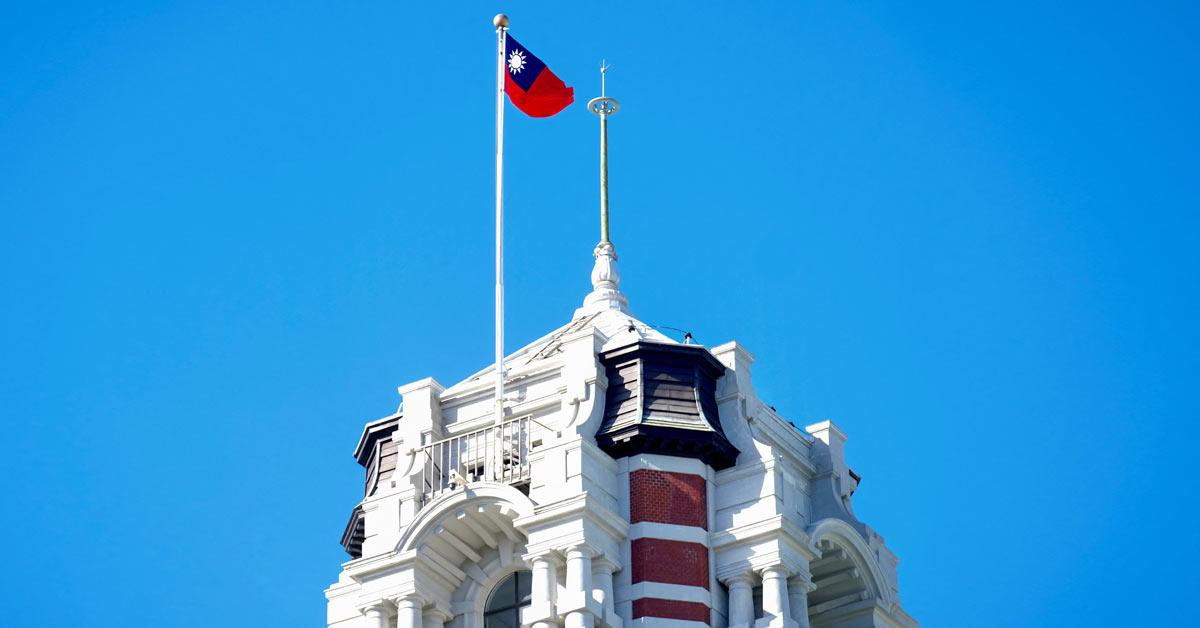Would the United States (US) be prepared to risk a catastrophic war with the People’s Republic of China (PRC) to protect the Republic of China (ROC), better known as Taiwan? President Joe Biden laid out his vision clearly last week. He sees the rivalry between the PRC and the US as a global conflict between democracy and autocracy, and the ROC is unquestionably one of Asia’s most successful democracies.
In 1954, President Dwight D Eisenhower threatened to use nuclear weapons after China shelled a rocky islet near Taiwan’s coast, when the ROC was still a military dictatorship. But things were different then. The US was treaty-bound to defend Taiwan.
This changed after 1972, when President Richard M Nixon agreed that Taiwan was part of “one China,” and President Jimmy Carter nullified the defense treaty in 1979. Whether the US would still fight a war over Taiwan has become a question subject to what Henry Kissinger long ago termed “strategic ambiguity.”
As a result, American military commitments in the East China Sea are very peculiar. A defense treaty with Japan obliges the US to defend a few uninhabited rocks called the Senkaku Islands (or the Diaoyu Islands in Chinese), but not democratic Taiwan and its 23 million people.
There are practical reasons why a Chinese military attack on Taiwan might still provoke a war with the US. China’s control of the East China Sea would be a threat to Japan and South Korea. Allowing that to happen could start a dangerous nuclear arms race in East Asia. Taiwan also has highly advanced computer technology, which the US and its democratic allies would prefer not to see in the PRC’s hands.
Then there is the long hand of history. We are not determined by the past, but we ignore it at our peril. And while its effects may be the result of myths, myths can be more potent than facts. At the core of contemporary Chinese nationalism is the idea of national humiliation redeemed by renewed greatness.
According to this narrative, for at least one hundred years, between the Opium Wars in the 1840s and the brutal Japanese invasions in the 1930s and 1940s, China was degraded, bullied, and occupied by foreign powers. Only the national revival overseen by the Communist Party of China will ensure that this never happens again.
This lesson is taught throughout the country, in patriotic museums, memorials, movies, books, musicals, and of course, history textbooks. One reason for the current dominance of revanchist nationalism in official Chinese rhetoric is the weakening of Marxist-Leninist or Maoist ideology in China. With so few Chinese, even Communists, still believing the old dogma, the Party needed a new justification for its monopoly on power.
Redemption of the humiliations of the past has become a powerful one. Japan’s colonial conquest of Taiwan, as a spoil of its victory over China in the Sino-Japanese War of 1895, still rankles. It is irrelevant that the emperors of China never cared much about Taiwan.
Nor is it important that it was not the Chinese people who were humiliated, or even China as such, but rather the Qing Dynasty’s empire, ruled by Manchus, which the Chinese Revolution in 1911, led by Han Chinese, brought down.
None of that matters as the Party regards restoring or keeping the Qing imperial possessions, like Taiwan and Tibet, as a sacred patriotic duty.
Americans are affected by a different history – for which they weren’t even directly responsible. It was Britain’s Neville Chamberlain who signed the Munich Agreement in 1938, allowing Hitler’s Germany to begin dismantling Czechoslovakia. Chamberlain’s name would be associated forever with cowardly appeasement, while Winston Churchill emerged as the great war hero.
But the Munich Agreement has haunted American foreign policy, possibly even more than Britain’s, like a vengeful ghost. Presidents and prime ministers have been terrified of being compared to Chamberlain and have dreamed of being heroic Churchills. “1938” emerged in US political rhetoric in pretty much every foreign crisis since the war. President Harry S Truman invoked it at the beginning of the Korean War in 1950, when he vowed to “contain” communism.
When the British refused to send troops to Vietnam to help the French fight against Ho Chi Minh in 1954, Eisenhower accused Churchill, of all people, of “promoting a second Munich.” And so, it has continued. In Vietnam again during the 1960s, Richard Nixon, among many others, warned of another Munich.
More recently, in the US-led wars against Saddam Hussein, both Presidents Bush, father and then son, compared the Iraqi dictator to Hitler, and fancied themselves in the role of Churchill. On the eve of that war, British Prime Minister Tony Blair read Chamberlain’s diaries as a lesson in what not to do.
It may be that in today’s world, when a superpower conflict could destroy much of mankind, China and the US will avoid a war over Taiwan. So far, China appears to be playing a game of chicken, probing Taiwanese defenses, flying into its airspace, stepping up naval patrols, engaging in military practice runs for an invasion, and making provocative statements about “not ruling out the use of force.” This is met on the American side with more arms shipments to Taiwan and tough talk about a new cold war.
A game of chicken is a test of who will crack first, so it can escalate quickly and unpredictably. Being in thrall to the ghosts of history makes it harder to back down. If both sides refuse to do so in a crisis, everyone will lose.
Related Articles:

